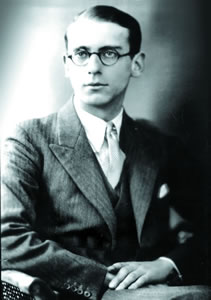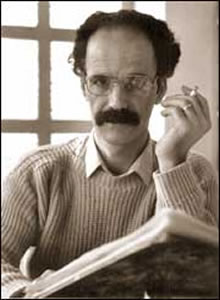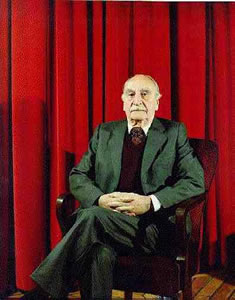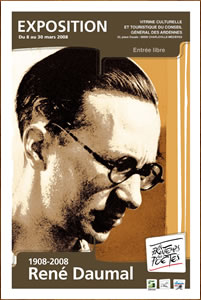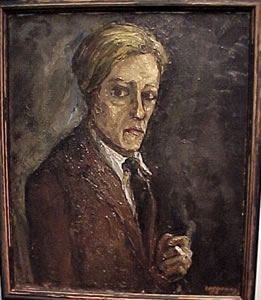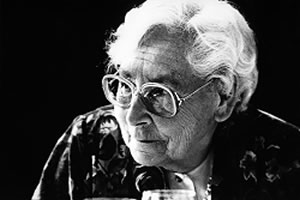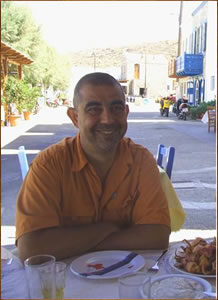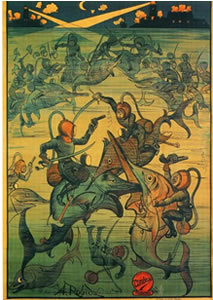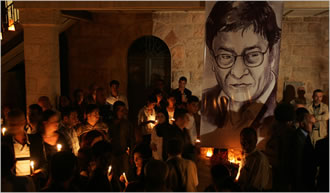De Franse schrijver Hafid Aggoune werd geboren op 17 maart 1973 in Saint-Etienne. Zie ook alle tags voor Hafid Aggoune op dit blog.
Uit: Premières heures au paradis
„Je n’ai jamais été un enfant.
Dès la naissance, mon enfance s’est envolée ailleurs, à jamais éloignée de sa part sublime, orpheline.
Le temps a filé.
Longtemps, la vie m’a échappé. Elle me dépassait constamment. J’avais beau courir, m’interroger, me lancer dans toutes sortes de tentatives, je ne parvenais pas à la rejoindre à temps.
Toutes ces années, j’ai grandi seul, perdu au fond de moi-même, dans une tristesse silencieuse, prisonnier des rêves.
Lorsque l’amour a pris ton visage, l’illusion a duré un temps : cinq années de joies pures.
Je ne sais pas pourquoi certains hommes partent quand le plus beau arrive, mais je sais que le pire est de partir quand on aime l’autre plus que tout au monde, sans rien pouvoir éviter.
Souvent, je pense à ce que je n’ai pas su te dire, toutes ces choses de moi que je n’ai pas pu te donner. Maintenant, elles sont là, paroles jusque-là étouffées par le malheur. Apparues, elles demeurent présentes à la surface de cette personne qu’il me semble avoir trouvée aujourd’hui : Théophile Cannan. On dit qu’être acteur c’est n’être personne.
Notre histoire était aussi parfaite que cette journée particulière où je te quittai, et comme tu l’apprendras ici, en quelques mois ma vie a changé à un point que personne ne peut imaginer.
Ce beau jour de mai, j’ai ouvert la porte et je suis parti sous un ciel bleu. Les ténèbres envahissaient mon crâne. Des jours de silence ont suivi, un long purgatoire vers l’oubli, l’attente d’une délivrance définitive. Je ne savais pas si tu allais me comprendre, m’attendre, garder précieusement ce qui commençait de naître en toi.“
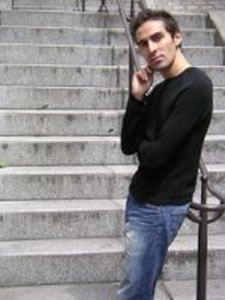
Hafid Aggoune (Saint-Etienne, 17 maart 1973)
Lees verder “Hafid Aggoune, Rense Sinkgraven, William Gibson, Siegfried Lenz, Urmuz”

